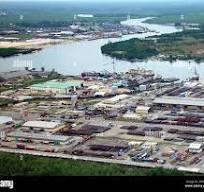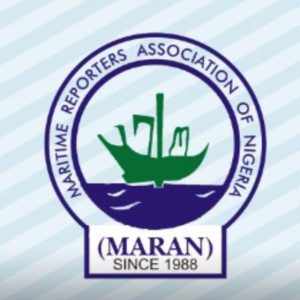By Enyeribe Anyanwu
The plan to introduce the electronic call-up system at the eastern ports is causing disaffection in the nation’s port industry. The scheme is being resisted by stakeholders comprising, importers, freight forwarders, clearing agents and maritime workers who operate at the ports.
Wednesday, last week, the stakeholders held a meeting in Port Harcourt where they voiced their vehement opposition to the plan to introduce the e-call up system at the eastern ports.
The stakeholders, under the aegis of Coalition of Eastern Maritime Stakeholders, rose from their meeting with a contention that the implementation of call-up system will cripple the eastern ports and business of Oil and Gas Free Zone.
They contended that the management of the Nigerian Ports Authority should rather worry about how to revive the Eastern ports of Warri, Calabar, Port-Harcourt, and Onne whose infrastructure have decayed over the years. They also contended that the repair of the port access roads which have been in deplorable condition for many years should be the area of concern and not electronic call-up system for trucks.
According to the coalition, bringing e-call system to the ports will frustrate the competitiveness of Eastern ports, particularly Onne, Port-Harcourt, Calabar and Warri, as well as affect the logistics efficiency of the Oil and Gas Free Zone. This, they said, poses a grave threat to national economic balance, regional development, and the ease of doing business in Nigeria.
The Eastern ports stakeholders pointed out that traffic gridlocks still persist at the Lagos ports despite the operation of e-call system, stressing that the system lacks decent implementation and coordination, often creating more delays than it alleviates.
They also stated that the system “creates high costs as truckers incur extra fees in holding bays and endure long waiting times, driving up overall logistics costs.”
Moreover, they alleged that the system was replete with corruption and manipulation, noting that access to ports via the e-call up system only favours some contractors, thereby undermining transparency.
They insisted that no measurable value addition has been noticed with the system in Lagos, saying that “There is little evidence that the system has improved time efficiency, cost-effectiveness, or clarity in cargo movement.”
The eastern ports stakeholders maintained that eastern ports have a model of efficiency which makes for zero congestion, and are thus free of the chronic bottlenecks that plague the Lagos ports. They added that the ports operate free systems which enable swift loading and discharge of laden and empty containers.
The aggrieved stakeholders submitted that the proposed electronic system at the eastern ports was “unwarranted and ill-suited” for the underutilized eastern facilities as the system was introduced at the Lagos ports to combat the perpetual traffic gridlock.
From the sideline, is there any merit in the arguments of the eastern ports stakeholders and their opposition to the electronic call-up system? The answer, unfortunately, is a resounding “YES”.
The system, as being implemented in Lagos ports access roads is being plagued by corruption and racketeering, reversing whatever initial gains that were made at its introduction. Traffic congestion is gradually returning to the access roads.
A few weeks ago, the Trucks Transit Park Limited (TTP), managers of the Electronic Call-up System, the Nigeria Customs Service, and licensed agents organized a training programme to address the problems of the Eto call-up system. They identified corruption and racketeering as being responsible for the congestion and disorder along the port access roads.
There, it was revealed that while the official cost of an Eto ticket is N20,750, the service users are paying up to N400,000 and more to black marketers, while trucks line up at the port access roads, causing traffic. It was acknowledged that fraudulent practices have undermined the effectiveness of the system which was designed to streamline truck movement and eliminate the chaos on the access roads.
The participants observed that possessing an Eto call-up ticket was no longer a guarantee for accessing the port.
These revelations and the current situation of things at the Lagos ports access roads validate the contention and opposition of the eastern ports stakeholders. It becomes necessary to caution the Nigerian Ports Authority and any other organization interested in introducing the e-call up system to take it easy.
The e-call up system was introduced to solve the acute problem of traffic congestion at the Lagos ports. Five years down the line, the system is still fraught with problems, while the traffic congestion palaver is yet to disappear, rearing its ugly head from time to time.
It is therefore, advisable to let the eastern ports be –at least for now. Traffic congestion on ports access roads is not the problem of the eastern ports, but decayed ports infrastructure, years of neglect and bad access roads.
The efforts of the current administration of NPA to revive business activities at the eastern ports is commendable, and should be sustained. The Ports Authority should, therefore, concern itself with the problems of the eastern ports as outlined by the stakeholders, of which traffic congestion is not one of them.
Solution should be applied where there is a problem. The e-call up system as a solution cannot be taken to a place where no need for it exists.





More Stories
$1billion Lagos Ports Upgrade: Progress or Policy Contradiction?
Nigerian banks, exploitation and Sterling Bank Example
CVFF: Is the jinx about to be broken?